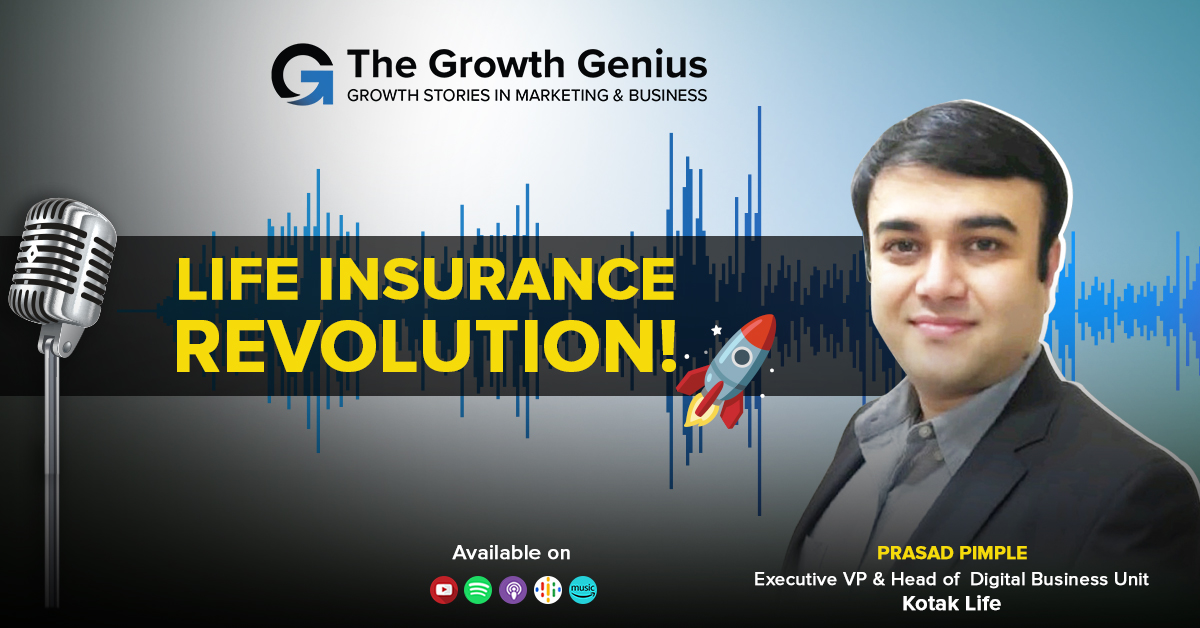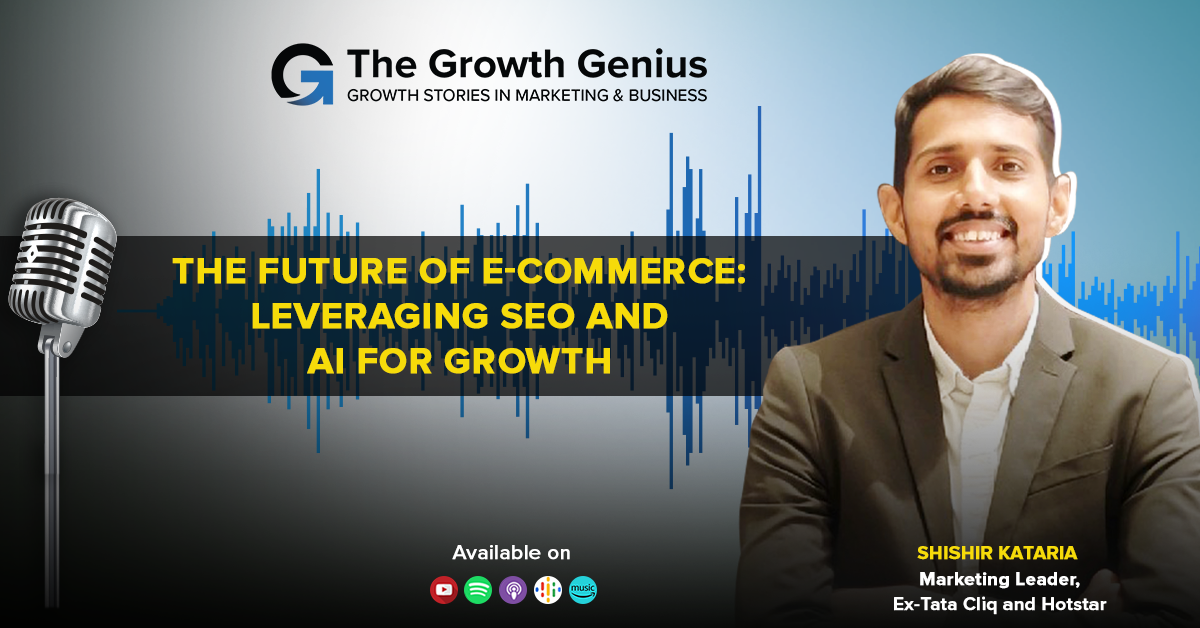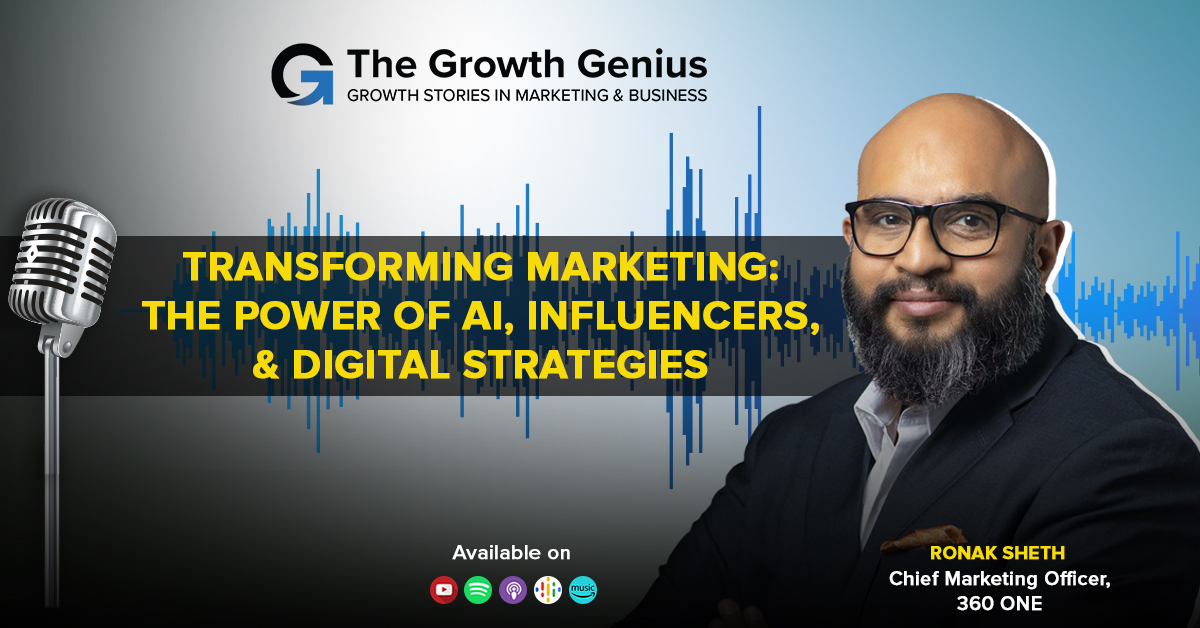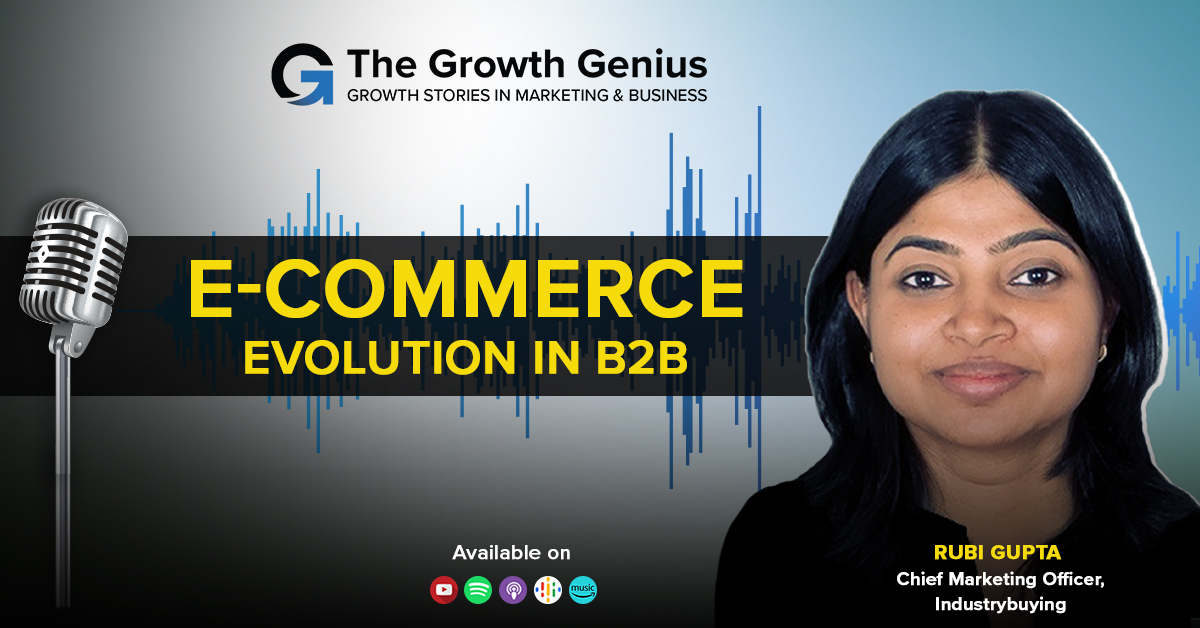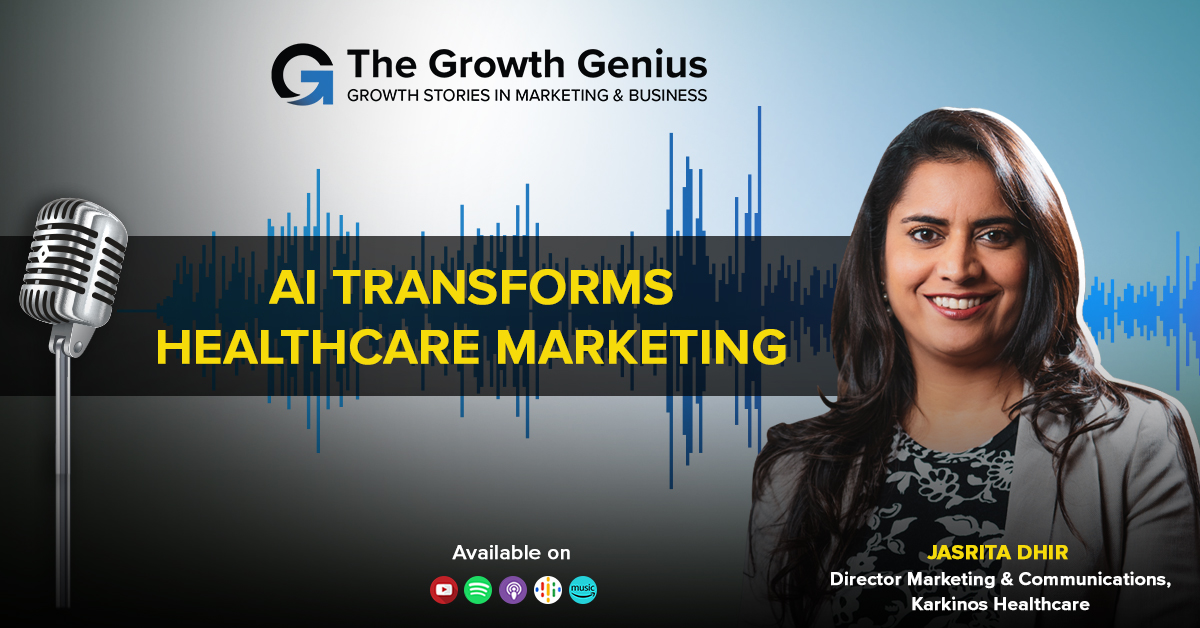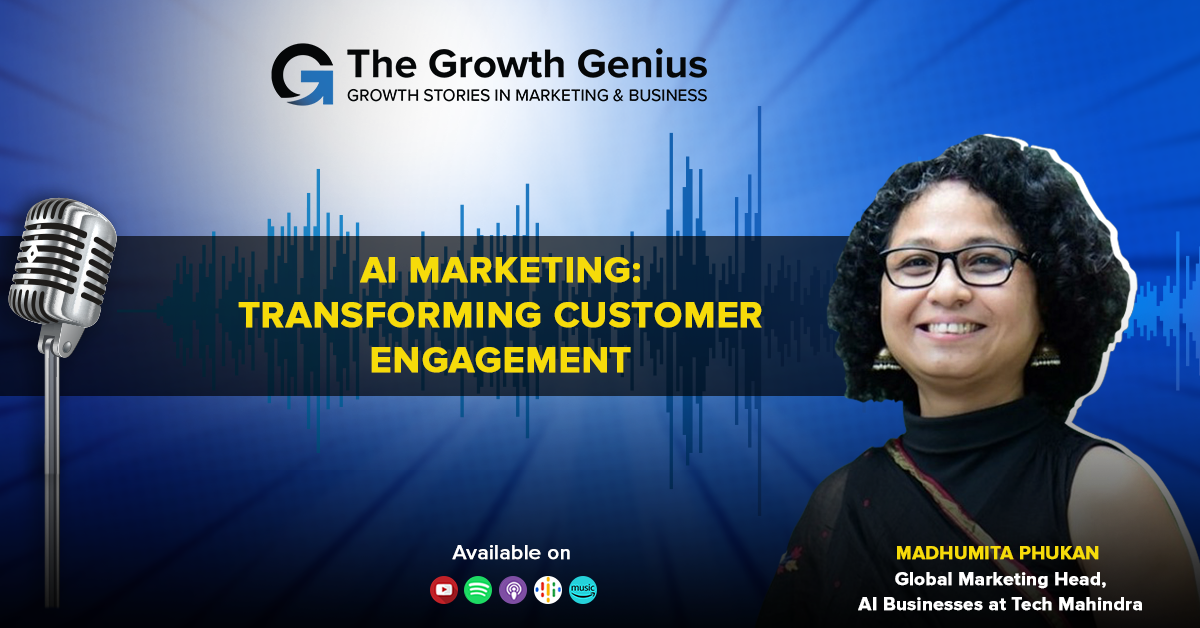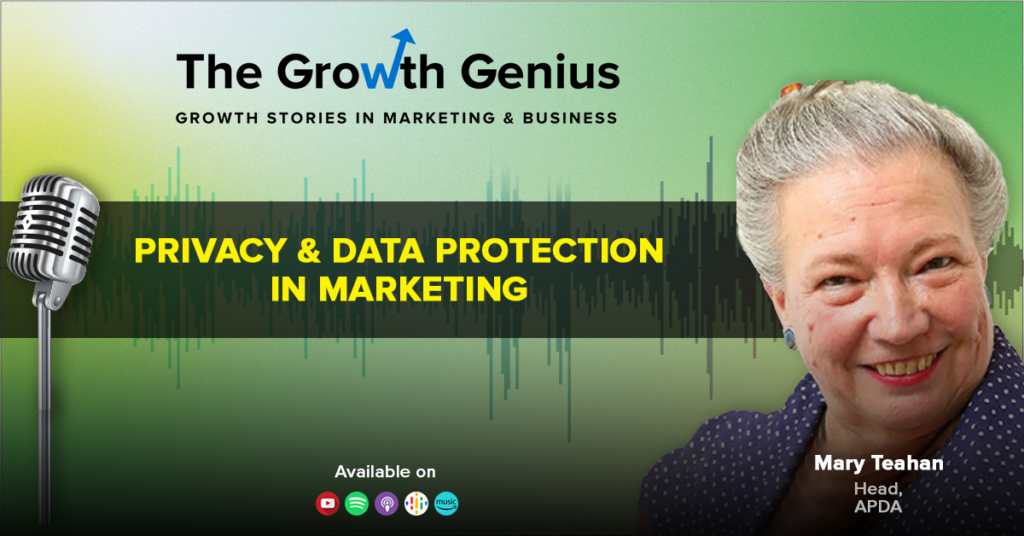
Witness an Increase in your ROI
Unlock higher rankings, quality traffic, and amplified conversions through tailored award-winning SEO strategies.
|
Getting your Trinity Audio player ready...
|
Listen on your Podcast app
Summary
In this podcast episode, Mary Teahan discusses the importance of marketing data privacy. She emphasizes the need for businesses to prioritize the protection of customer data and comply with privacy regulations. Teahan highlights the potential risks associated with mishandling data and the negative impact it can have on a company’s reputation. She also provides insights on how businesses can build trust with their customers by being transparent about data collection and usage. Teahan emphasizes the role of marketers in ensuring data privacy and suggests implementing measures such as data encryption and regular audits. Overall, this podcast episode sheds light on the significance of marketing data privacy and offers valuable advice for businesses to safeguard customer information.
Key Take Aways
- Understanding Privacy Regulations: The blog emphasizes the significance of comprehending data privacy regulations like GDPR and CCPA to ensure lawful and ethical data handling.
- Informed Consent Matters: Obtaining explicit user consent before collecting and using their data is crucial for maintaining transparency and complying with privacy laws.
- Data Minimization Principle: Digital marketers should adopt a data minimization approach, collecting only necessary user information to minimize risks and enhance trust.
- Secure Data Storage: Ensuring robust security measures for storing and managing user data helps prevent breaches and protects customer privacy.
- User Rights and Communication: Marketers must respect user rights to access and control their data, and establish clear channels for users to manage their preferences.
- Cross-Border Data Transfers: International data transfers should adhere to legal frameworks, ensuring that data remains protected when moving between regions.
- Third-Party Vendors Scrutiny: When working with third-party vendors, verifying their data privacy practices is essential to maintain compliance throughout the data lifecycle.
- Continuous Compliance Monitoring: Data privacy isn’t static; marketers need to monitor changes in regulations and adapt strategies to uphold data protection standards effectively.
Read Transcript
Mary Teahan: – In privacy legislation in the Privacy sector there are two terms that are very important uh opt-in and opt out if I had to recommend to your listener Shelley if you don’t have an opt-in requirement in your country go for the opt-out because that’s very important using personal data and marketing is not an option it’s a fact.
Shelly Singh :- Welcome to the growth genius series brought to you by DMA Asia and infidigit my name is Shelly and I’m your host today our guest speaker is Mary Teahan Mary is head of APDA the alliance that runs at choices program in Argentina she has over 20 years’ experience in privacy and data protection as they relate to marketing Mary also chairs the institutional and international relations commissions at DMA Argentina and is honorary president of the association she’s a former chair of the GDMA Global Alliance of data-driven marketing associations where she presently a member of the executive committee a very warm welcome Mary.
Mary: – Thank you Shelly it is good to be with you.
Shelly: – That’s great to start with please tell us a little about you your company and your role to our viewers and listeners?
Mary: – Okay well actually I represent International forums Argentina but I was born and raised in the United States and I met my Argentine husband at the University of Chicago where we both got our MBAs and we came down here to Buenos Aires after getting our degrees and I’ve been living and working in Argentina ever since um I have a long professional career as a professional marketer in leading companies in Argentina first in the financial services sector and then in the consumer durable sector and the last two years working in companies I was a marketing director for the Recently privatized Argentine post office and that was a marvellous plan a marvellous project but it failed mostly for political reasons and at that point I decided I was going to switch sides to the counter I’d been a marketer employing agency Services among other things in big companies and so in the early 2000s I took over an integrated marketing Communications agency and started receiving big companies as my clients working for like Argentina Telecom Volkswagen Xerox the natural gas utility and other large companies and after nine years of doing that I said well actually at this stage in my career I would like to do something with my marketing and Consulting talents and experience that makes for a better world and so I sold that agency with its commercial customers in it I had some NGO what we now call them OSC’s uh social organizations Charities as customers and I founded the agency I have today which just works with social organizations charitable organizations and sometimes with the corporate social responsibility areas of corporations in the ways in which they will cooperate with the charitable organizations and so um when I go to sleep at night I have a good day bad day you always have them whenever you’re working but I’ll say at least when I go to sleep at night I know I did something and put my little contribution towards a better world through my professional career so as chair of the Argentine DMA in the year 2000 the Argentine Congress was considering data Protection Law personal data Protection Law Ed after the European directive from 1995 at that time and so I was involved in the lobby presenting our marketing views with respect to personal data protection and ever since then I have been in contact with Regulators in Argentina in representation of RDMA regarding marketing and data protection I also shared as you said the global DMA for six years and continue to serve on its executive committee so Global best practices is also one of my part of my bailiwick and I’m a university professor in marketing I’m an author of books and articles on marketing and privacy and a frequent speaker in events and locations such as your very interesting series of interviews Shelly and thank you for inviting me.
Shelly: – Wow great great professional background and great move from USA to Argentina yeah so Mary you have been working in privacy and data protection for so long, but I’ll start with the basic when did privacy and data protection become so important in marketing?
Mary: – Well you know many people might not realize since the 1960s and the 1970s lots of us who know how to practice direct marketing which has now evolved into digital marketing the associations involved in direct marketing created what they call preference Services because they could tell that they were basically using a physical mail postal mail letters and catalogs and things like that and later telephone marketing and there were people who for ecological reasons didn’t want to see their mailboxes filled with paper that they weren’t interested in and other people who did not want to receive any telephone marketing costs so these associations established in the private sector list where people could sign up and say don’t phone me and the members of the associations would then use that list and refrain from contacting these people and privacy legislation in the Privacy sector there are two terms that are very important but opt-in and opt out opt in means that marketing if you’ve got an opt-in system marketers cannot contact a prospect to try to communicate and sell something to them inclusive services without a previous bouquet from that person to receive Communications opt out system is that the marketers can contact anyone on most of the data they have there’s very few types of data that are like children and sensitive Health Data and sexual orientation and things like that where you can’t but in 95 of the things that we marketers would want to contact people we can do that without prior consent but the opt out means that when that person says I don’t want to receive more emails from you I don’t want to receive your interest-based advertising like an opta and AD choices I know I don’t want to receive your telephone calls once you receive an OP out then you have to uh stop contacting that person now obviously the industry prefers the opt out system because it’s virtually impossible to get people to in great numbers to opt in and say Yes I want to receive marketing Communications with respect to bicycles or I want to receive marketing Communications with respect to makeup or cell phones or whatever um people just won’t answer and um so in opt-in it’s not really very viable system for marketing so in the industry would prefer to be opt out system I always use the example of my eldest son’s wedding uh here in Argentina he got married and we’re having a party and he wanted to invite like 200 people and the service curve attendee at the wedding party cost 250 per person so you really wanted to know who’s coming who is not coming because that was a lot of money and you know not even relatives and the closest friends answered the RSVP we had to call everybody and ask them so that shows you if for your friend’s wedding and you know that he’s going to spend a lot of money to entertain you at his wedding party if people don’t answer that how are they going to answer me if I want to sell them makeup online it’s you know opt in doesn’t work for marketing so obviously we need that now the Golden Age of privacy legislation with respect to marketing begin with the European law in 1995 and that’s the one that the Argentina was copied after in which they started to regulate that and then in 2018 what’s called GDPR which is famous nowadays that General data protection regulation in Europe became very famous and and they started to tighten the screws because there wasn’t a whole lot of compliance with the previous director and they put huge fines and so forth actually both Norms 1995 norm and the 2018 GDPR will permit direct and digital marketing on an opt-in basis because they consider marketing to be in legitimate interest um so the that legislation and the legislation we’re trying to see passed a new law in Argentina because the one we have is 23 years old would allow the opt out hopefully for some reason many companies and many of them are international companies have decided that they’re going to go the other route with GDPR which is previous prior concept which has helped him and which I know like and um so what you’re going to see um throughout the world are is like a plethora of what they call CMPs consent management platforms which are sophisticated digital Stacks which uh allow you to obtain consent and so forth and I really don’t really understand why companies that don’t have to have often are going for this but I guess every company knows what they have to do if I had to recommend to your listener and Shelly if you don’t have an opt-in requirements in your country go for the opt out because that’s very important as a matter of fact there actually are parties in Europe even in the European Parliament who consider the GDPR may have gone overstepped as bounds in terms of uh privacy and data protection to the point that they think it may be affecting the European Region’s competitivity and ever increasingly digital world so that’s also one of the considerations and then finally since 2017 the Argentine DMA has been a member of AD choices and that is the system that sort of closes the circle that we have you can opt out of physical letters you can opt out of emails you can opt out of telephone marketing and now you can opt out interest-based ads that are done by tracking supposed interests on websites and in apps on your telephone so now we’ve got the entire opt-out scene available and it’s available when in Argentina which is definitely not one of the world’s leaders in this but it’s also available in the United States and Canada and most of Europe so we’ve got the opt out scene fully covered.
Shelly: – Okay great great so the collection and use of personal data are the core of any business model and Innovations in today’s data economy so what do consumers want with respect to privacy and data protection in marketing and what are their concerns?
Mary: – Well I definitely agree with what you say that the core of business models and what I speak to corporate lawyers and so forth who are asking about this I said listen using personal data and marketing is not an option it’s a fact and we will be using it ever more and I consider there are two Dimensions that concern consumers with respect and particularly online but also offline the first one is annoyance is Interruption and so forth so you know that telemarketing call that comes in the middle of a family dinner or when you’re in the shower your email inbox is getting so full of spam that you can’t find a your actual the emails you actually want to read or we’re also now seeing what’s up in a messenger services that are being used for marketing and we’re in danger of having a little bit too much Interruption there so if I had to talk to marketers you will be listening to your this interview I would say just because you can send a message and just because that message is really cheap or almost zero cost doesn’t mean that you should what you need to do is try to segment and Target and try to send those messages to people you have some reason to think that they actually might be interested in your offer like for instance if you send me well I’m not exactly a spring chicken if you send me ads for snowboard to go up to the Andes mountains and uh and go snowboard in the morning that that is very poor targeting because I definitely am not going to buy a snowboard so even if it’s free or very low cost don’t do it do it only if you have an indication that this person might be interested in what you’re doing the other dimension the first one was annoyance is I think that marketers we are not really involved in this hopefully but there’s fake News identity theft phishing and all sorts of scams that are going on online those are real problems and it’s scary and so I think that that’s another reason for concern with respect to Consumers but it’s not us although some people so the from the press and some people from legislators or politicians and so forth tend to want to say oh yeah it’s you marketers that are doing that and it’s not us not as those are the scammers of those are the dishonest people that there are evidence about the history of the world now the global DMA did a survey of 16 countries more than 20 000 interviews last year regarding consumer attitudes for the online marketing and what they discovered and this is true of North America Europe Australia and even Argentina Mexico and Brazil they found that uh most people are very pragmatic with respect to sharing the personal data online with marketers 53 on the average pragmatists their 29 people are unconcerned about their data online which is not a good idea from my point of view because there are those Bad actors out there and 18 alone are fundamentalists so you know I’m private I don’t want anybody to invade me you know the old Robinsons I’m on an island all by myself so they’re the fundament fundamentalists or the interesting thing is that in Asia things are a little bit different in China and India they’re more much more pragmatist about three-quarters of the people interviewed pragmatists and only six percent are fundamentalists uh which is good and then in Japan is really different they’re 39 of unconcerned uh although the number of fundamentalists is about the same as in in Europe and North America so this confirms that most consumers throughout the world are not particularly worried about data privacy in an online marketing context okay the annoyance Factor yes but not the safety Factor and however as I say there are some members of the press and some politicians that for their own political reasons or to sell their media to people they try to stir up a storm with respect to privacy and marketing and so forth so that is unfortunate not representative of what new marketers are actually doing and that representative of what the research associate consumers are really concerned about.
Shelly: – So what specific challenges does data privacy create in the context of competition and Antichrist?
Mary: – Okay well I’m not an expert in antitrust but certainly the concentration of power in a small number of high tech companies is concerning and I’m talking about meta Google and apple among others and I think that’s being looked at by Anti-Trust government officials both in the United States and and in Europe at least and one problem that is happening with a data legislation data protection legislation is when they want to get really really strict and if you’re taking the European GDPR and you’re going for the consent or the opt-in side the only thing that’s doing is increasing the concentration the power of these big players they think that they’re trying to favour the consumers but that actually what they’re doing is they’re concentrating more power in these big companies because it’s difficult for small and medium-sized companies to Market on their own and so they actually have to go the the harder they make it get they have they end up in the in the hands of Google and apple and so forth and a very important example of this is much touted deprecation of third-party cookies apple is already put into force and I don’t know if you’ve noticed but you can tell Apple no actually would like to receive this inter-based advertising but you’ll only receive it through Apple they won’t let you receive it through other other sites and so that’s the concentration of power again now Google has been more prone to dialogue with the industry groups and it is successively put off the elimination of third-party cookies it was originally scheduled 2022 and uh then there was going to be 2020 they know since sometime in 2024 perhaps we will do this and the reason is that they haven’t found a good substitution that meets marketers needs and affects their advertising revenues obviously if they don’t do it so in any case experts are recommending that companies try to migrate to first party relationships between the brands and websites and the apps and the consumers to prepare for that but the problem is that this is a major challenge for businesses in general and many small and medium-sized businesses I’m not going to be able to do it so they’re going to end up even more dependent on these big tech companies so that’s as I say I’m not an expert on antitrust but it certainly sounds dangerous to me.
Shelly: – So now, like we have already spoken about, you have already spoken about Google, Apple, and we see that the data protection and privacy environment has shifted significantly since recent years so what is the changing landscape in consumer privacy what significant steps have been taken by companies like Apple Firefox and Google in consumer privacy you have shared some points already, but can you please elaborate more?
Mary: – Okay well once again I am an expert on marketing context and I’m not referring to fake news and manipulation of public opinion and even indoctrination of individuals that I don’t know if you’ve seen some of the Netflix movies such as the social dilemma and the big hack which was referring to Facebook giving all its data to Cambridge analytic and they used it for a sort of scary purposes in elections throughout the world not only in the United States they also used in Argentina I don’t know about if you’ve had any experience with that well there are certainly this danger certainly exists and I think that the big players are trying to address these issues now we don’t know with Elon Musk and Twitter what’s going to happen there the crazy things happening uh in the digital landscape and once again I’d like to say that um we well-intentioned marketers are really not guilty of these sins and uh I certainly hope that the big Tech guys uh managed to get this under control uh that what we do have to do as marketers however is to show that we are the good guys and um we have to keep our act clean and be conscious of the privacy and the annoyance factor to Consumers and try to increase the Public’s trust in marketers and it’s as simple as that.
Shelly: – Yeah that’s right so my next question is that what do international industry leaders recommend that marketeers do regardless of whether their country has a formal data protection legislation in place or no?
Mary: – Okay I would recommend that our listeners log on to globaldma.com globaldma.com is very short very easy because we developed last year our Global privacy principles which are exactly this we’re telling people if you’re in a country where there is no privacy legislation you should be doing this anyhow in order to show you’re the good guy and you want the consumer Trust and we also want to show this to policy makers legislators and regulators throughout the world to tell them what we think that they should be looking at and there’s seven points in the very very developed in detail on this website I’ll just name what the general principles are one is to Value privacy to really say I’m a marketer and I really am going to think about the right of my consumers to privacy and data protection you have to be clear and transparent if you’re asking for an opt-in be careful that they just tell them what they’re opting into and basically what the data will be used for you should respect the individual’s preferences and so and so that you get and opt out by God you really need to respect that this is something that in Argentina we still use a lot and particularly in my sector which is the charitable sector we found that many people won’t close a donation a monthly donation online and so we get the lead and we call them on the phone and we talk to them and they answer the questions and and the probability of closing a donation online is like 200 times higher on the phone is 200 times higher than doing it online so if we get an opt-out someone says please don’t call me anymore you got be careful not to call now down here we’ve got the portability of cell phone numbers and so the cell phone company is just going wild calling people all the time to try to get them to switch the companies and the one thing that is very common I’ve even spoken to our Regulators here in Argentina and they complain about this too is that they don’t tell their telemarketers that if you get an opt-out you have to accept it and report it and so the company has to take that person off their marketing list they don’t respect the opt-out request and that is a big problem that is a major problem so one of the principles is respect the individual’s preferences they say I don’t want you to call me anymore you want to send me an email that’s fine if you want to send me a letter in the mail that’s fine but don’t call me another one and that’s the third principle value privacy be clear and transparent respect your individual preferences and then process personal data ethically and that these Global principles tell you what we mean by that um take responsibility to say yes I’m responsible for this respecting privacy keep personal data secure don’t have any data breaches and so forth and finally be accountable show be able to prove what you’re doing to protect data and respect privacy and those are seven principles and once again it’s globaldma.com and I would suggest that all the people who are listening take a look at that and check to make sure there’s policies and respect in those principles.
Shelly: – Sure so do you have any other suggestion for the marketeers in our audience?
Mary: – I just say try to incorporate into your daily operation the seven principles that will respect privacy and above all respect your customers news about Prospect act accordingly and create trust because if you become a bad operator not respecting things what you just sort of reflects back on the whole industry so if we all behave the way we’re supposed to behave we’ll all be better off and if not then we’ll all be worse off and so just respect and try to create that trust.
Shelly: – Hey great thanks for sharing and this brings us to the last segment of this episode please tell us about any one passion to follow and how it helps you to elevate your profession?
Mary: – Okay I love industry Awards and particularly The Echoes which I know you are familiar with are you’ve judged echoes Shelly in New York with us the echo is the maximum distinction in the world for the best work in dated marketing Communications and I love participating in The Echoes entering work from my agency my clients and I love judging the awards it’s not just the thrill of receiving a trophy and going to the party and doing a press release we won this trophy although that is certainly satisfied I am thoroughly convinced that being part of The Echoes because I have some 20 years has made me a much better professional and I’ll tell you why when I write up the cases and I quite often do them myself I don’t delegate that to someone else in my agency despite the fact I’m president of the agency as I write it up I realize all the things that we did that were good right on and then I realized my God we forgot to take advantage of this opportunity we didn’t do this and we could have done it and would have made it even a better campaign and so when you realize that then you say well let’s remember this so the next campaign we won’t forget to do it and we’ll be better marketers because when as we write it down you know nothing to say what you can write down if you talk about it you just talk about if you write it down you really know and so that’s that’s very important and then I love to judge because when we judge we see all the new and fresh and the innovative ideas and creative and so forth that the other people are doing in different Industries and we can learn from that and take the inspiration and adapt it nobody we don’t copy but we adapt that to um our own work and our own clients and so we do better work for them and finally since I considered that everyone entering judging the crisis or even just many people go through the Galleries and they read is let’s see who won um gold Echoes In in this and that other thing as they read the cases they also have an experience like the judges did to see that the new and fresh ideas and so forth so as we enter As we judge or we view the work we are getting inputs to improve our own marketing and sort of raises the Professional Standards throughout the entire industry and that’s why I have a passion for Awards in general and the echo Awards because that’s data and marketing which is also my passion in particular so that’s one thing I wanted to mention today and hope that many of your viewers will or participate in words The Echoes in particular.
Shelly: – Great so where can ever viewers find you and connect?
Mary: – I would love to receive contacts my email I think you you’re going to want to ask your editors to write this on the because it’s mteahan@qender.com.ar but again there’s qenda it’s a little bit difficult and also I’m more than welcome to receive WhatsApp messages and I’ve got my telephone number here for you so I’ll give those to you and if somebody wants to know it’s +54 9114-164-9782 but it’s not exactly catchy number like something some of the jingles that they have in the states my contact details are not that I’d love to hear from the people.
Shelly: – Okay great so this brings to the end of our episode I just wanted to do some update marketers are Guardians and custodians of a business brand image Studies have found that misusing user data can have dire consequences for organizations with about 8 out of 10 customers reporting that they are willing to abandon a brand if their data is used without their knowledge so keeping consumer privacy and Trust at the center of the data strategy is more important than ever so thank you so much Mary for sharing your thoughts on such a critical subject for marketeers thank you.
Mary: – Okay thank you Shelly.
Shelly: – Thank you for listening if you enjoyed this episode, please like it, and share it also leave a rating and review I’ll see you next time in a new episode with a new speaker till then peace.


